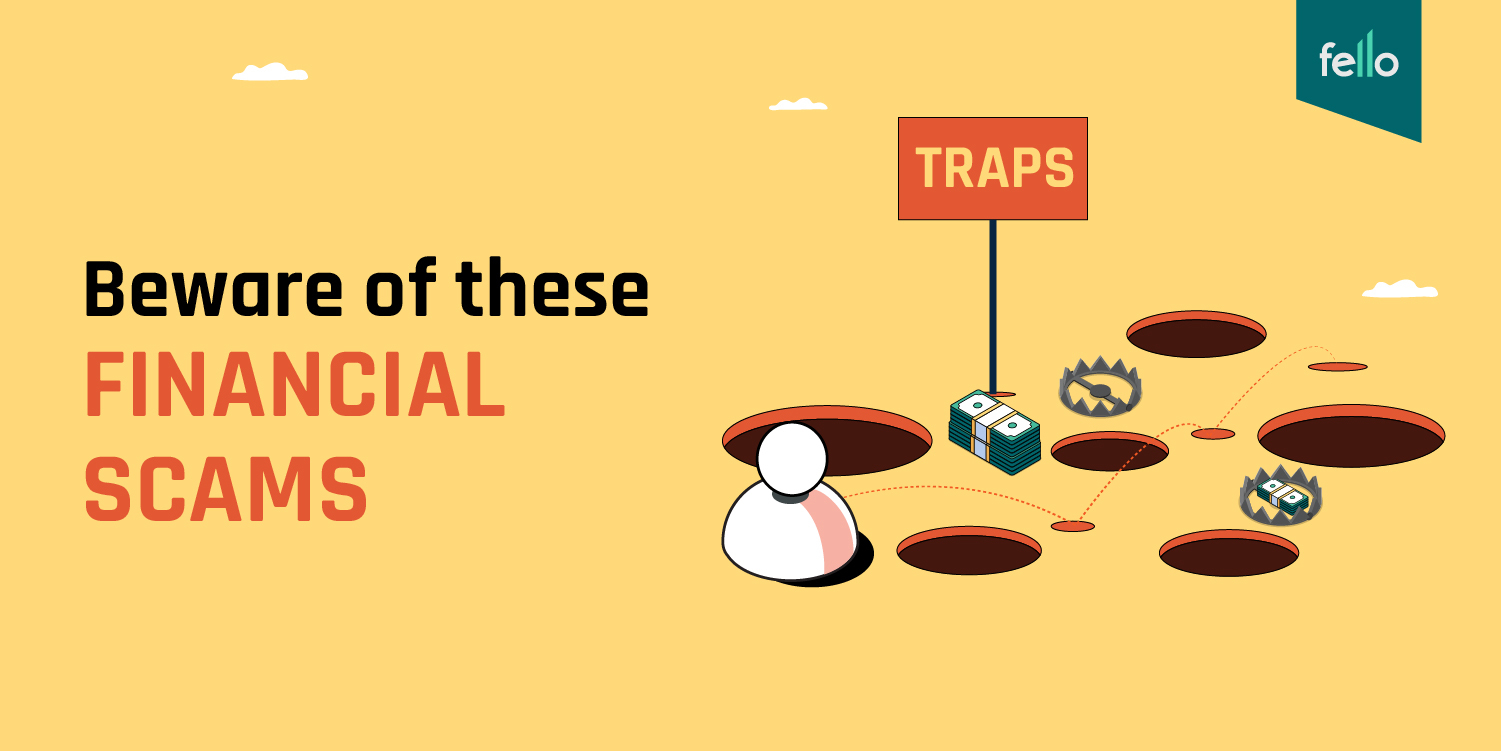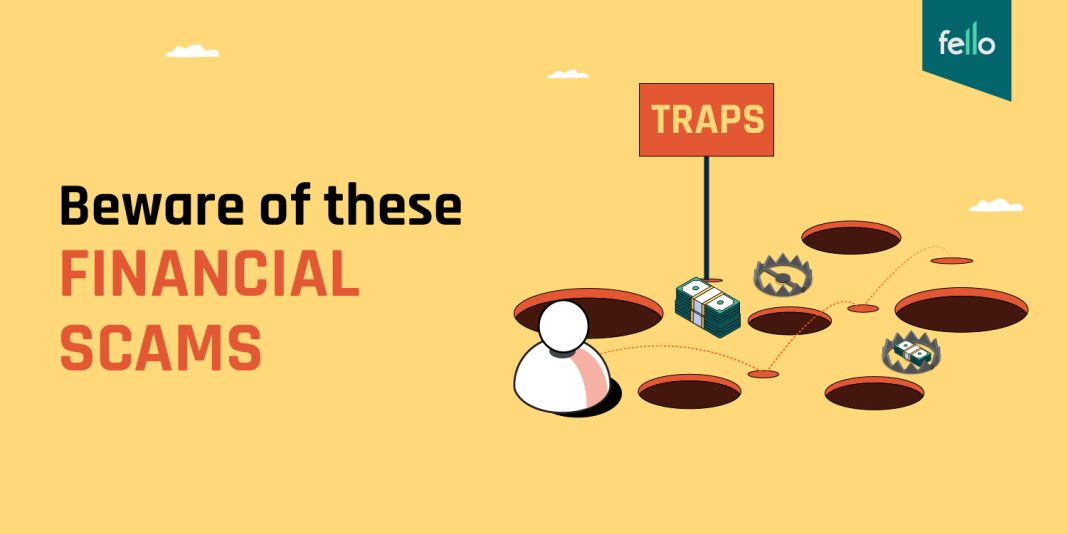 Introduction:
Introduction:
Financial scams affect millions of Americans each year, resulting in significant financial losses. Even those who are cautious can fall victim to fraud, especially when it involves a trusted financial advisor. However, there are steps you can take to escape a scammy advisor’s clutches and regain control over your finances. By recognizing red flags, gathering evidence, cutting ties with your advisor, and taking necessary actions, you can protect yourself and prevent further harm.
Recognizing Red Flags: Signs of a Scammy Advisor
To effectively escape a scammy financial advisor, it’s crucial to be aware of the signs that indicate potential fraud. Some red flags to watch out for include:
1. Guaranteed returns: Be cautious of advisors who promise consistent high returns, as this is often a tactic used by scammers to lure victims. Remember that high returns come with high risks.
2. Excessive pressure: Legitimate advisors will never pressure you into making hasty decisions or investing in something you don’t understand. If you feel rushed or coerced, it’s a warning sign.
3. Unclear fees: Hidden fees, excessive commissions, and a confusing fee structure are indicators of an untrustworthy advisor. Transparency is essential in the financial industry.
4. Unprofessional behavior: Lack of responsiveness, poor communication, and a disregard for your financial goals are all signs that an advisor is not acting in your best interests.
5. Suspicious credentials: Verify an advisor’s credentials and affiliations before entrusting them with your money. Exaggerated experiences and associations with dubious organizations should raise concerns.
6. Secretive or evasive behavior: A reputable advisor will be transparent about their investment strategies and fees. If an advisor is vague or avoids answering your questions, it’s a red flag.
7. Unsolicited contact: Legitimate advisors typically work through referrals or established networks. Be wary of cold calls or emails promising financial miracles.
Escaping a Scammy Advisor: Steps to Take
Once you’ve identified the red flags, it’s crucial to take immediate action to protect yourself. Follow these steps to escape a scammy advisor:
1. Gather evidence: Create a “fraud file” that includes all evidence of the fraud. This may include emails, phone recordings, texts, and documents. Research the advisor and their company for any complaints or disciplinary actions.
2. Cut ties with your advisor: Terminating the relationship with your advisor is necessary. Be sure to read your client agreement thoroughly and understand the terms and procedures for ending the relationship.
3. Make a new course of action: Decide how you will manage your finances moving forward. Options include managing your portfolio independently, using a robo-advisor for automated portfolio management, or finding a new financial advisor who aligns with your goals.
4. Gather your financial documents: Request copies of all account statements, investment reports, and tax documents from your previous advisor. This will provide a full picture of your financial situation for future reference.
5. Communicate with your advisor: Inform your advisor that you are terminating the relationship. Keep the conversation professional and avoid personal attacks.
6. Cut ties officially: Under your client agreement, terminate the relationship and request a transfer of your assets to your new advisor. If dealing with a scammy advisor, consult your state attorney general for crime victim rights and resources.
What to Do if a Financial Advisor Scammed You
If you’ve been scammed by a financial advisor, it’s essential to take immediate action to minimize further damage. Here are some steps to consider:
1. Contact your bank or credit card company: Notify them of the scam and request freezing your accounts and reversing fraudulent transactions.
2. File a report with the Federal Trade Commission (FTC): Reporting the scam helps catch scammers and prevents others from falling victim. Visit https://reportfraud.ftc.gov/ to file an online report.
3. Change your passwords: Immediately change passwords to your bank accounts, credit cards, email accounts, and any other online platforms.
4. Place a freeze on your credit report: Prevent scammers from opening new accounts in your name by freezing your credit with Equifax, Experian, and TransUnion.
5. Monitor your credit report: Regularly check for any unauthorized activity and consider signing up for a credit monitoring service.
6. Run a virus scan on your computer: Scan for malware that may have been installed by the scammer and be cautious about clicking on suspicious links.
Seeking Professional Help and Protecting Yourself
If you need guidance on recovering your losses, contact a reputable financial advisor or lawyer who can help navigate the legal complexities. Additionally, take steps to protect yourself from future scams:
1. Do thorough research: Before hiring a financial advisor, research their credentials, experience, and any disciplinary actions. Check with regulators like FINRA and the Securities and Exchange Commission.
2. Ask questions: Don’t hesitate to ask questions and seek clear explanations. A good advisor will welcome inquiries and ensure you understand the investments before making decisions.
3. Beware of unsolicited offers: Avoid falling for cold calls, emails, or seminars promising easy money or quick returns. Scams often begin with these tactics.
4. Diversify your portfolio: Spread your investments across various asset classes to minimize risk and avoid relying solely on one advisor.
5. Educate yourself: Take the time to learn about personal finance and investing. The more you understand, the less likely you are to fall victim to scams.
6. Keep realistic expectations: While it’s unlikely to recover all your money, taking action and reporting the scam increases your chances. Civil lawsuits, mediation, or arbitration may help recover some lost assets, but it’s important to be aware of the time and costs involved.
Conclusion:
Escaping a scammy financial advisor requires awareness, action, and the willingness to take steps to protect yourself. By recognizing red flags, gathering evidence, cutting ties with your advisor, and seeking necessary help, you can regain control over your finances and prevent further harm. Additionally, taking precautions to protect yourself from future scams will ensure your financial well-being.


